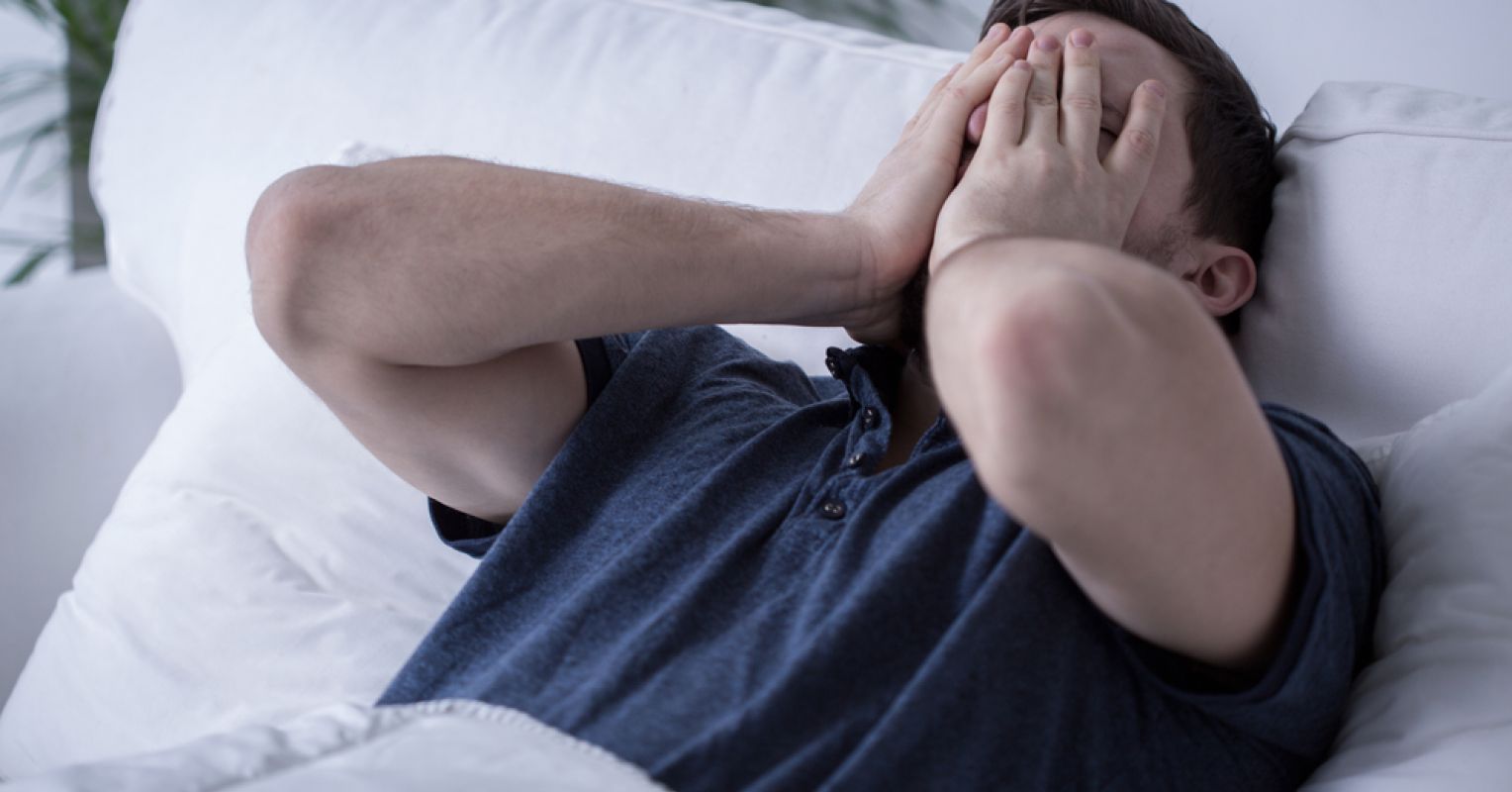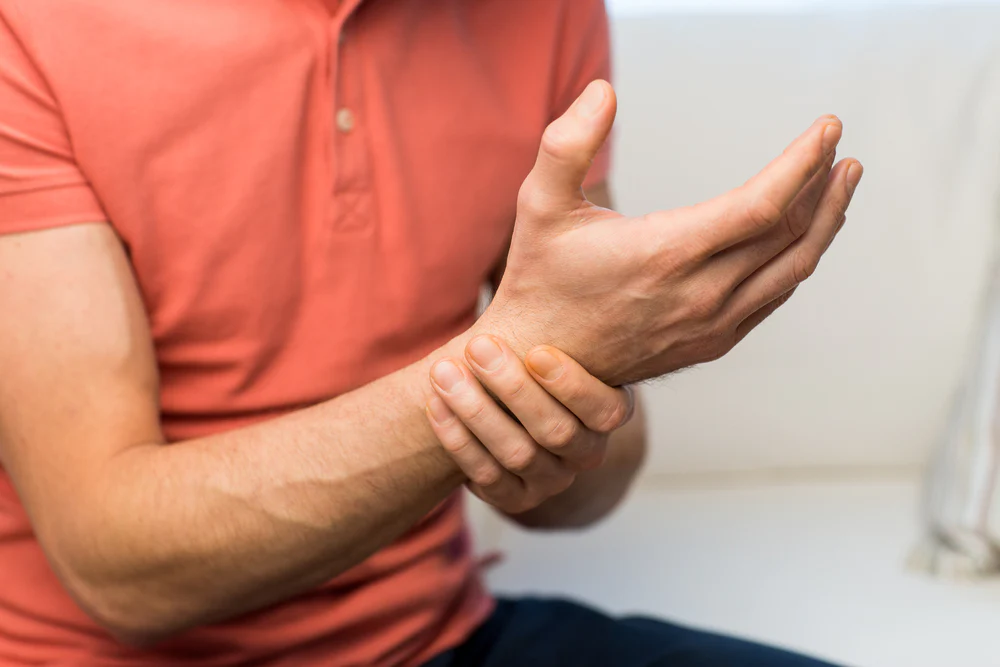Sleep Disorders and Conditions
Why Do You Twitch While Sleeping? Understanding Hypnic Jerks
In this blog, we will delve deeper into the causes, symptoms, and potential treatment options for hypnic jerks, so that you can better understand and manage this common sleep phenomenon.
Have you ever experienced a sudden jerk or twitch while sleeping? If yes, then you're not alone. Hypnic jerks are a common phenomenon that affects nearly everyone. Though the exact cause and reason for these jerks or twitches are unclear, there are some explanations. Here are a few possible reasons why you might be twitching while sleeping:
Evolutionary Trait: One hypothesis suggests that these sleep jerks may be remnants of our primate ancestors. It suggests that when they were sleeping in the trees and fell out, their muscles tensed up to brace for impact. The brain misinterprets relaxation as falling out of a tree, and the jerks are the body tensing up. This may explain why we experience falling or being startled when we dream.
Misfiring Brain: Another possible explanation is that your brain electrically "misfires" as you transition from wakefulness to sleep. Hypnic jerks generally occur during the stage of sleep in which your muscles start to relax, and you begin drifting off. During this time, motor areas of the brain can become spontaneously stimulated. Your brain may misinterpret this stimulation as wakefulness during a less-than-seamless transition to sleep.
External factors contributing to hypnic jerks may include:
Exercising in the evening, which can make it more difficult for your body to relax when it's time to go to bed.
Consuming stimulants like caffeine, nicotine, or certain medications, which are known to disrupt your sleep schedule.
Leading a high-stress lifestyle, which can contribute to your brain remaining overly active as you are trying to fall asleep.
External sleep disruptions like loud noises and bright lights, or even a partner working in bed next to you, which can hinder your ability to cycle into deep sleep.
In conclusion, hypnic jerks are a common and often harmless occurrence. While there is no surefire way to prevent them from happening, understanding the possible causes and external factors that may contribute to them can help improve the quality of your sleep.
How to prevent sleep twitching: Tips and Tricks for a better night's sleep
Hypnagogic jerks or sleep starts are involuntary muscle movements that occur while falling asleep. They can be caused by a variety of factors, including stress, anxiety, caffeine, and alcohol consumption. If you are experiencing these jerks, there are several things you can do to reduce them and improve your sleep quality. Here are some tips:
Exercise earlier in the day
Daytime physical activity is crucial for healthy nighttime sleep, but intense exercise close to bedtime can disrupt your sleep. Stop moderate-intensity exercise at least 90 minutes before your nightly pre-sleep routine to allow your core body temperature and endorphins to return to levels that are conducive to sleeping.
Reduce caffeine and alcohol intake
Reduce your coffee and alcohol intake after midday to lessen the jitters and possible restlessness. Having too much before bed not only makes it difficult to fall asleep, but it may also increase the frequency of hypnic jerks.
Establish a sleep schedule and bedtime routine
Maintaining a regular sleep schedule and bedtime routine will help your body know when it's time for bed, making it easier to fall asleep consistently each night. An irregular sleeping pattern due to shift work or late nights could lead to an increase in twitching while sleeping. Dim the lights and engage in activities that help slow down your heart rate and relax the mind, such as reading or breathing exercises, to prepare yourself for bed.
Remove external sleep distractions and stressors
Stress and anxiety can disrupt sleep and exacerbate hypnic jerks. Reducing stress through mindfulness meditation, breathing techniques, progressive muscle relaxation, and other techniques may help reduce hypnic jerks. External sleep distractions, such as leaving the TV on, sleeping with the windows open, or having bright lights shining in, can also keep you from falling and staying asleep. Find ways to cut out outside disruptions, such as wearing a sleep mask, hanging curtains to block light, or wearing earplugs to reduce the volume of sounds you can't control.
Consult your healthcare provider
Hypnic jerks are not a serious condition and are unlikely to cause complications. However, if you are feeling anxious or concerned about hypnic jerks and are aware that you experience them regularly, talk to your healthcare provider for guidance on what you can do to improve your experience of falling asleep and staying asleep.
By following these tips and tricks, you can reduce the frequency and intensity of hypnic jerks, improve your sleep quality, and wake up feeling refreshed and energized.
Sleep Disorders and Conditions
Sleepless in Psychiatry: Unraveling the Role of Sleep in Neuropsychiatric Illnesses
Sleep Disorders and Conditions
When Sleep Disorders Clock In: Insomnia’s Impact on Productivity of Young Adults
Sleep Disorders and Conditions
Why Does My Body Twitch When I Sleep
Sleep Disorders and Conditions
Hypnic Jerk: Why Do I Twitch in My Sleep?
Sleep Disorders and Conditions
When your Arm Falls Asleep: Causes and Treatments
Sleep Disorders and Conditions







